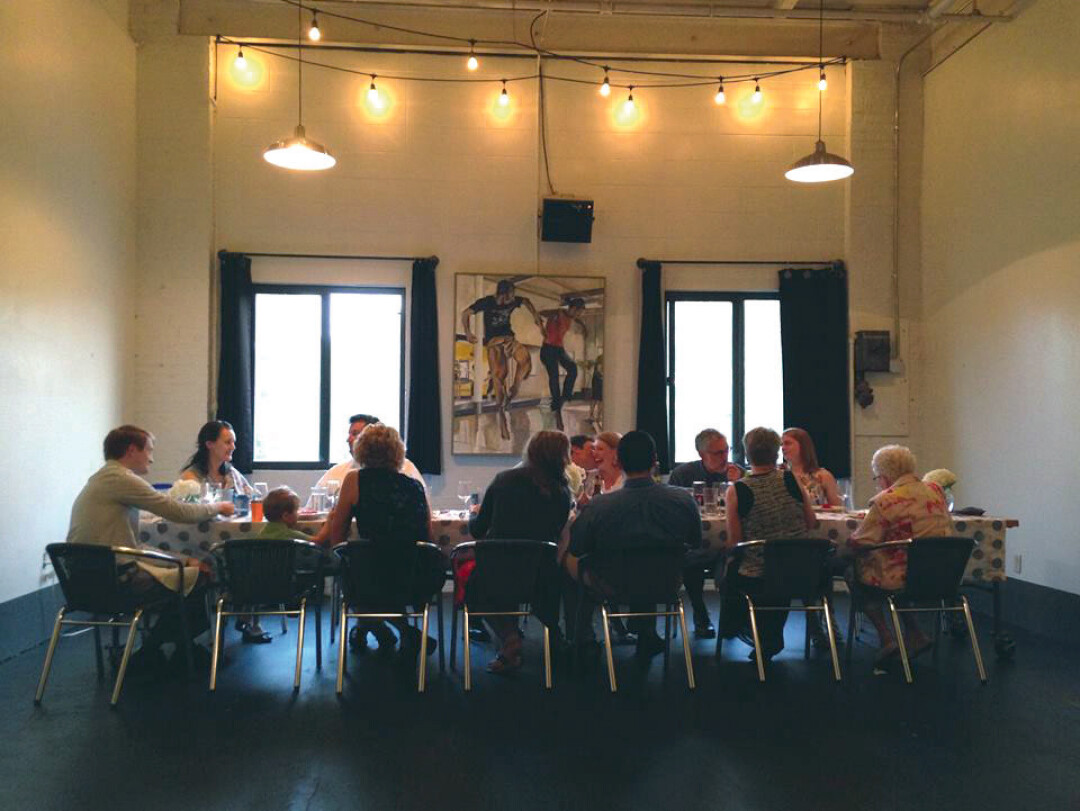Building on Local Food
Forage, a community food space, will triple in size

While being interviewed about the current expansion going on at Forage owner Trish Cummins liberally uses the term “incubator.” The “Kitchen Incubator” is a center for catering, retail, and wholesale production – versions of which are already at work in Boston, Chicago and New York – where Cummins plucked ideas to model Forage after when she created the business two years ago. The “Space to Create, Educate, Celebrate,” as the tagline reads, has risen steadily in popularity and in its volume of offerings, so much so that she is tripling the size of her space in Banbury Place.
Construction is underway in the original Suite 214, as well as in the neighboring Suites 212 and 216 to expand Forage from 1,000 to 3,000 square feet. Expanding from one kitchen to two and adding details such as a barn door segue between two rooms and trendy plywood accents, the space will be permanently arranged for hosting classes, events and even restaurant-style service of brunch on special weekends throughout the year. A 1,200-square-foot dining room will be available to host intimate weddings, as it did in early July, and hopefully serve breakfast to out-of-town festival-goers.
Currently, Forage is home to wholesale food production of a few local items you may recognize: Nancy Rothwell’s A Bit of Everything hummus and Sara Noble’s Noble Pickling, which includes cucumbers, brussels sprouts, beans, and eggs. Trish hopes to include more creative individuals in use of the kitchens for prepping their contribution to the local food scene with their own products. She even calls it “our kitchen” – considering all that create there a collective “we.”

Food education is a priority at Forage, for both adults and children. Previously, Nathan Berg and Michelle Kaufmann – local chefs of note – hosted classes in the space, espousing on knife skills, how to prep a five-course meal, and cooking with seasonal vegetables. After hosting a successful pilot program at Forage, Trish and company will continue their partnership with the Junior League of Eau Claire, using their recently awarded $12,000 grant from the Mayo Clinic Health System Eau Claire Foundation to educate grade school students on how to prepare and enjoy nutritious meals.
Trish elaborates on their educational offerings: “Our ‘Know Your Farmer’ series has been a great success on many levels. I am excited to expand upon this and create more of these opportunities where the community can gather around a fantastic meal and hear the first-hand stories of our local farmers, growers, makers, and producers,” she said. “These gatherings can lead to a guest’s understanding that spending our food dollars locally is the easiest way to eat a healthier diet that tastes great and ultimately creates a more sustainable food system.”
Currently, Trish and her family can’t get enough of the fresh veggies that are in abundance here in the Valley. “I am particularly crazy about the oyster mushrooms from Blooming Hill Farm at the Saturday (farmers) market,” she says. “They are finding their way into lots of dishes at our house.”
She hopes to share this palette for local, affordable, and seasonal food with our entire community. “My dream for Forage is to offer fun and affordable classes to meet a multitude of needs: Novice cooks, experienced home chefs who want to increase their skills, busy parents looking for shortcuts, families who are relying on Supplemental Nutrition Assistance Programs, people looking to add a different culinary landscape to their repertoire, and most importantly children who really come into the kitchen with such a natural curiosity and desire to learn.”




















